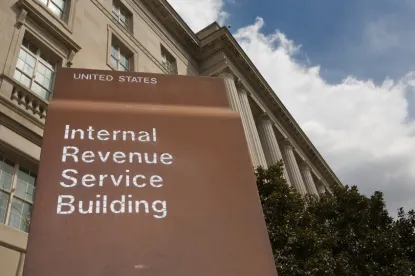On May 4th, the IRS released a set of FAQs focused on the special coronavirus-related distribution (“CRD”) and plan loan options under the CARES Act.
To recap, the CARES Act allows expanded distribution options and favorable tax treatment for up to $100,000 of CRDs from eligible retirement plans (including section 401(k) and 403(b) plans, and IRAs), as well as an opportunity to repay the CRDs. The Act also increases the limits for plan loans and allows certain loan repayments to be deferred by up to an additional year. These opportunities are available only to individuals who satisfy specified conditions related to COVID-19, and the expanded distribution and loan opportunities sunset at the end of 2020.
The FAQs offer helpful guidance for sponsors of retirement plans who are considering adding special distribution and/or loan options for participants affected by COVID-19. The following are some of the highlights:
-
When in doubt, follow the KETRA playbook. The FAQs say the IRS anticipates releasing more comprehensive guidance “in the near future.” The IRS anticipates the guidance will apply the principles of its guidance under the Katrina Emergency Tax Relief Act of 2005 (“KETRA”), which provided loan and distribution relief that was very similar to the relief offered under the CARES Act. The KETRA guidance is set forth in IRS Notice 2005-92.
-
Participants may self-certify that they are eligible, but there is a price to pay for misrepresentations. The FAQs reinforce that a plan administrator may rely on a participant’s self-certification that he or she satisfies the conditions for a CARES Act loan or distribution. However, the favorable tax treatment for CRDs (that is, the ability to recognize income over three years and avoid the 10% additional tax on early distributions) is conditioned on the individual actually meeting the conditions. In other words, a misrepresentation by a participant should not cause a plan to be disqualified (assuming the plan administrator does not know about the misrepresentation), but the individual who makes misrepresentations can be subject to tax penalties.
-
CRDs and CARES Act Loans are optional. The FAQs confirm that a plan sponsor may choose whether, and to what extent, to offer CRDs and/or loan relief under the CARES Act. For example, a plan sponsor could amend its plan to allow for CRDs and the suspension of loan repayments, but choose not to increase plan loan limits. Similarly, a plan could be amended to allow CRDs from some contribution sources but not others or to impose a cap on CRDs that is lower than the $100,000 permitted by the CARES Act. Regardless of whether a plan is amended to allow CRDs, an individual who satisfies the conditions for a CRD may claim the favorable tax treatment for any distribution that satisfies the CRD requirements and is (or was) received during 2020 (before December 31st).
-
The IRS “anticipates” that plans will accept repayment of CRDs, but acceptance of repayments is not necessarily required. The CARES Act allows participants to repay CRDs to an eligible retirement plan or IRA, and specifies that repayments will be treated as rollover contributions. The FAQs clarify that if a plan does not accept rollover contributions, the plan is not required to accept repayments of CRDs. However, the FAQs do not say whether plans that accept rollover distributions may choose not to accept CRD repayments.
-
Additional restrictions apply for pension plans. The FAQs state that the CARES Act relief for in-service withdrawals is limited to section 401(k), 403(b), and governmental 457(b) plans. The CARES Act does not change the rules for when a distribution from a defined benefit or money purchase plan is permitted. In general, this means that distributions from a defined benefit or money purchase plan would not be permitted before age 59½, severance from employment, or disability. In addition, the FAQs clarify that spousal consent is required for a CRD if required by the plan.
-
More to come on how to report CRDs. The FAQs state that the payment of a CRD must be reported by the plan on a Form 1099-R, even if the participant repays the CRD in the same year. The FAQs do not specify how to report the CRD; the IRS expects to issue guidance on that later in 2020. In the meantime, the FAQs refer generally to section 3 of the KETRA guidance.



 />i
/>i
